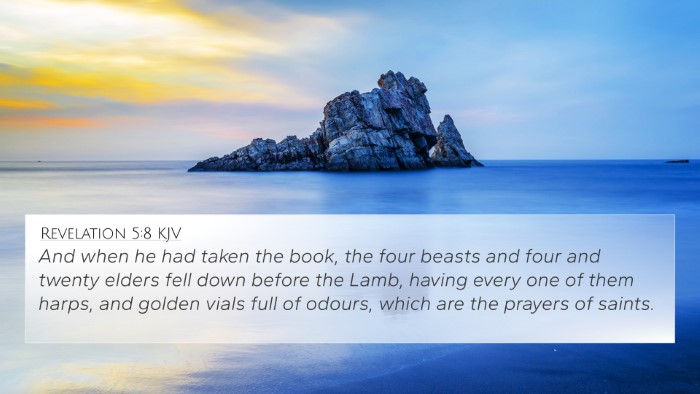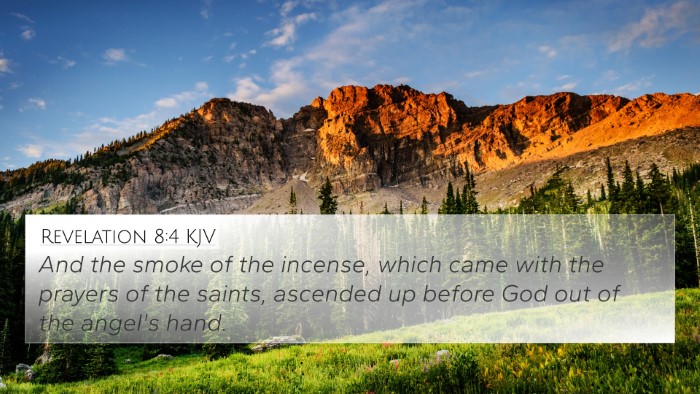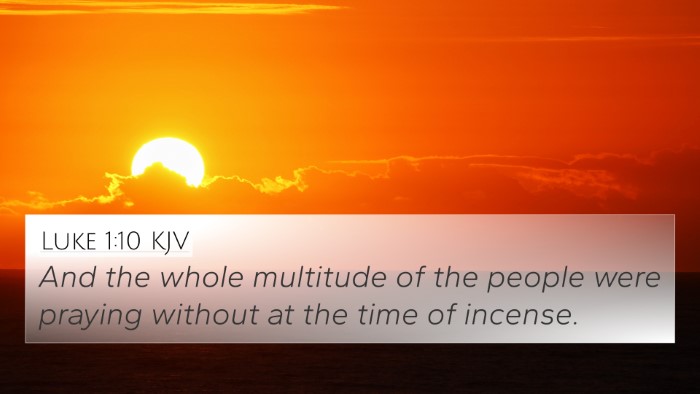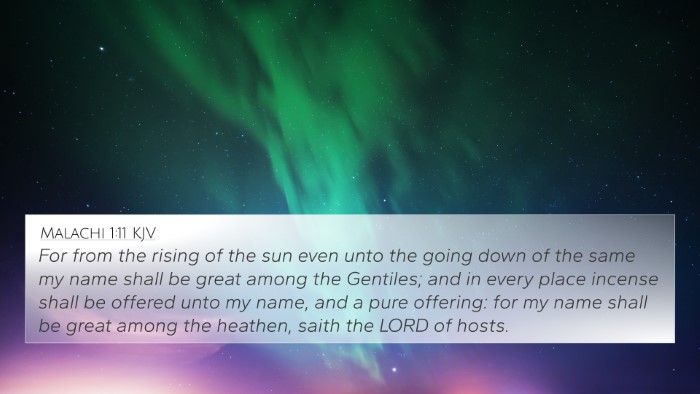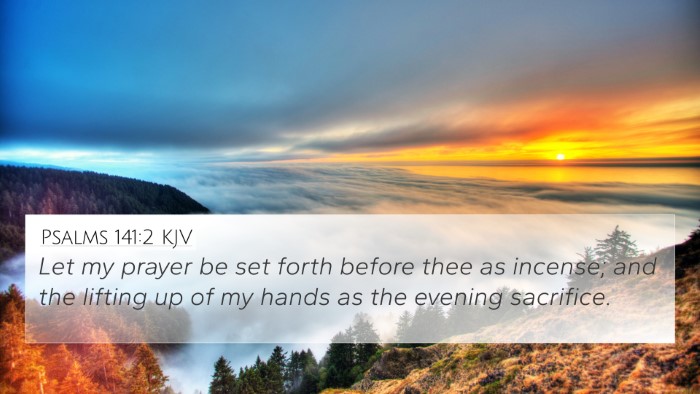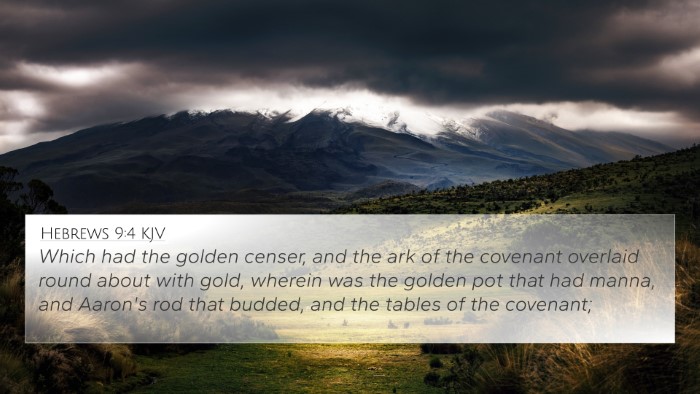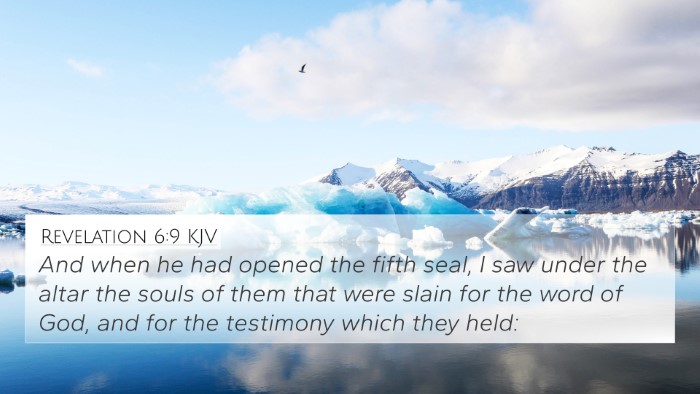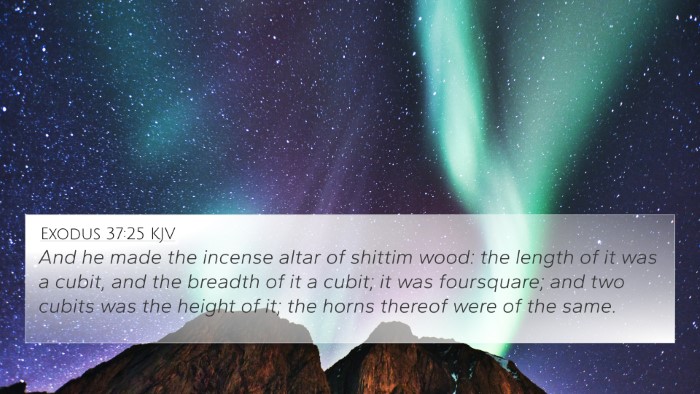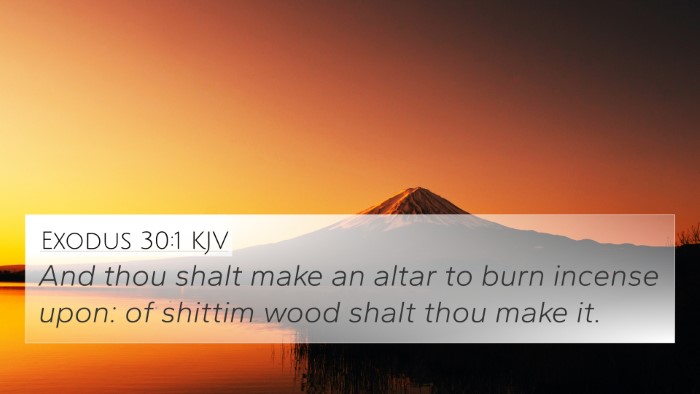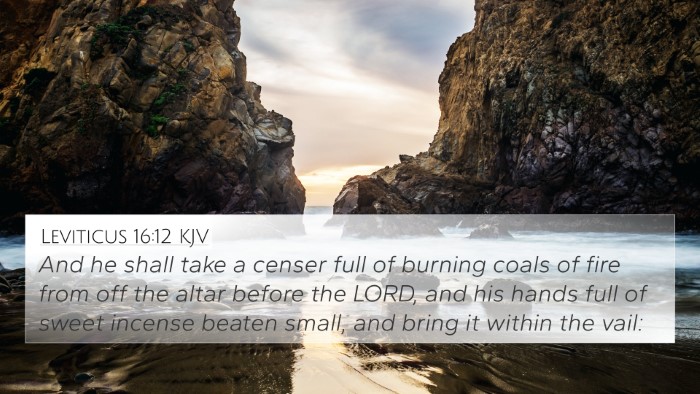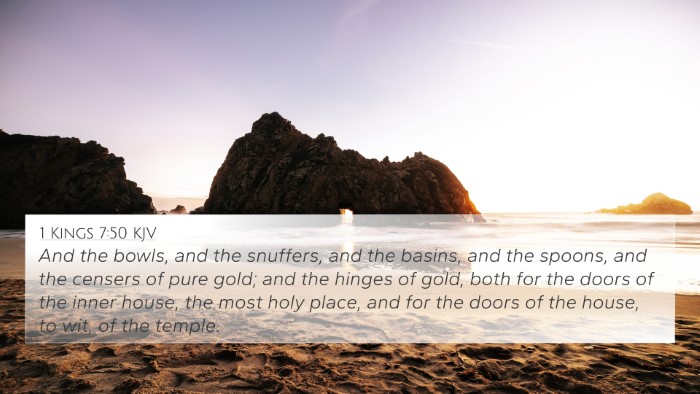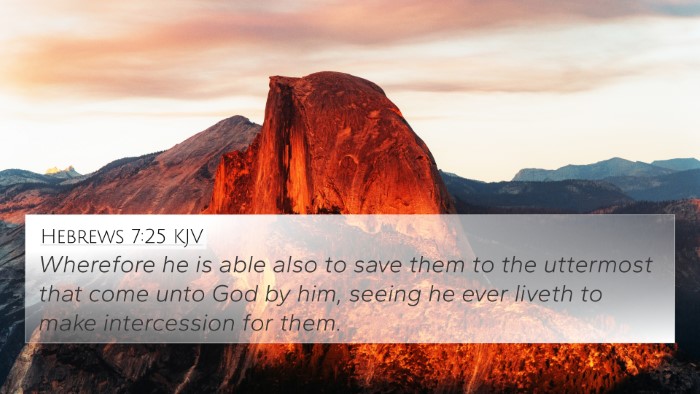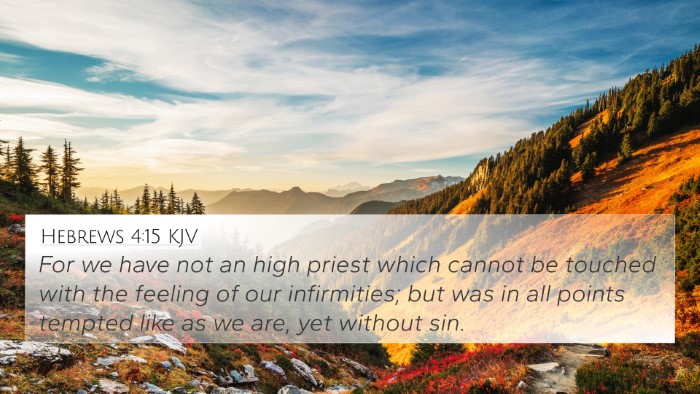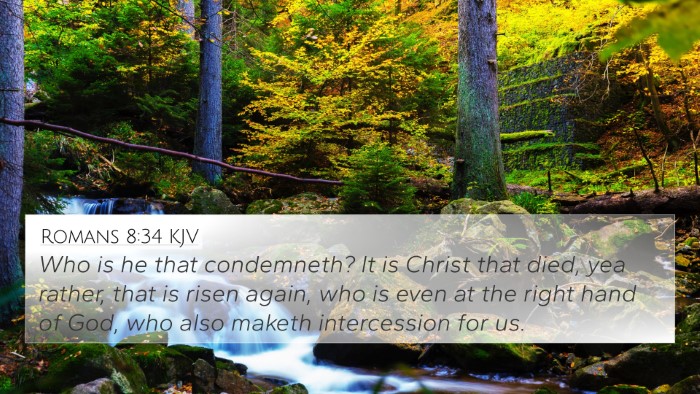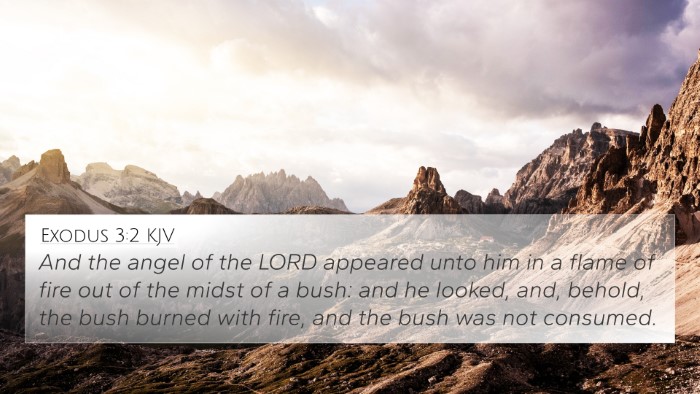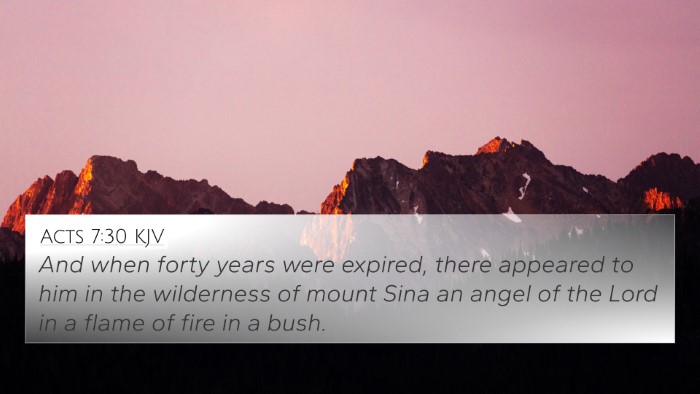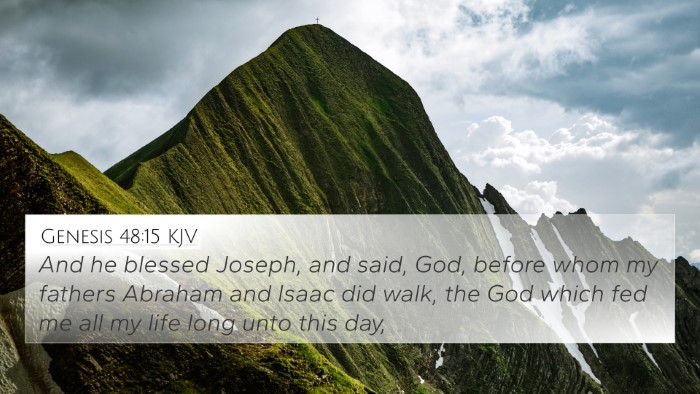Understanding Revelation 8:3
Revelation 8:3 reads: "And another angel came and stood at the altar, having a golden censer; and there was given unto him much incense, that he should offer it with the prayers of all saints upon the golden altar which was before the throne."
This verse signifies a pivotal moment in the heavenly realm, indicating the role of angels and the significance of prayers in the divine economy.
Summary of Meaning
The verse is richly layered with meaning that can be unpacked through the insights of respected biblical commentators.
Matthew Henry's Commentary
Henry describes the angel as a mediator who presents the prayers of the saints before God. The golden censer, a vessel associated with the sacrificial system, signifies the sacredness of prayer. It emphasizes that the prayers of believers are precious to God and are essential in the heavenly realm.
Albert Barnes' Notes
Barnes notes the significance of the altar mentioned in the verse. He draws connections between the Old Testament sacrificial system and its fulfillment in Christ, suggesting that prayer offered with incense symbolizes purity and holiness. Furthermore, he emphasizes the collective nature of the saints' prayers, illustrating a unified plea for divine intervention.
Adam Clarke's Commentary
Clarke elaborates on the angel's role, providing insights into the function of incense in biblical worship, representing the sweet-smelling savor of the prayers of the saints. He suggests that the golden altar is a place of intimacy between God and His people, where prayers arouse grace and mercy in response to the needs of the faithful.
Cross-References and Thematic Connections
This verse can be connected thematically and contextually with several other passages in the Bible. Below are key verses that relate to Revelation 8:3, illustrating connections and helping to understand the significance of prayer and intercession in scripture:
- Psalm 141:2: "Let my prayer be set before thee as incense; and the lifting up of my hands as the evening sacrifice." - This verse connects prayer directly with the act of burning incense, symbolic of a holy offering to God.
- Hebrews 7:25: "Wherefore he is able also to save them to the uttermost that come unto God by him, seeing he ever liveth to make intercession for them." - Here, the intercessory role of Christ is highlighted, parallel to the angel's task in Revelation.
- Luke 1:10: "And the whole multitude of the people were praying without at the time of incense." - This passage illustrates the communal aspect of prayer connecting to divine service.
- Exodus 30:7-8: "And Aaron shall burn thereon sweet incense every morning: when he dresseth the lamps, he shall burn incense upon it." - This Old Testament reference provides insight into the sacrificial practices that underscore the significance of incense in worship.
- Revelation 5:8: "And when he had taken the book, the four beasts and four and twenty elders fell down before the Lamb, having every one of them harps, and golden vials full of odours, which are the prayers of saints." - This verse ties directly with 8:3, showing the continuity of prayer's importance in heaven.
- 1 Peter 2:5: "Ye also, as lively stones, are built up a spiritual house, an holy priesthood, to offer up spiritual sacrifices, acceptable to God by Jesus Christ." - This verse expresses the believers’ role as priests, paralleling the angel’s offering of incense.
- Romans 8:26: "Likewise the Spirit also helpeth our infirmities: for we know not what we should pray for as we ought: but the Spirit itself maketh intercession for us with groanings which cannot be uttered." - This underscores the assistance we receive from the Holy Spirit in our prayers, echoing the intercessory themes found in 8:3.
The Importance of Prayer and Intercession
Understanding Revelation 8:3 deepens as we see the crucial role of prayer in the believers’ relationship with God. The collective prayers of the saints rise before the altar, reinforcing the idea of community in faith and the importance of seeking divine support.
Tools for Biblical Cross-Referencing
For those interested in further exploration, utilizing Bible concordances and Bible cross-reference guides can enhance your study. These tools enable individuals to identify patterns and thematic connections while providing a comprehensive view of scripture.
Conclusion
By examining the insights from Matthew Henry, Albert Barnes, and Adam Clarke, alongside substantial cross-references, one may better understand the depth of Revelation 8:3 and its implications for believers. The intercessory nature of prayer is profoundly significant, and through cross-referencing Biblical texts, we can uncover a richer comprehension of this and related scriptures.
Additional Resources for Cross-Referencing Bible Verses
Inter-Biblical dialogue enriches our understanding, and here are some methods and resources for effective Bible study:
- Use a comprehensive Bible cross-reference system to find biblical connections across various texts.
- Explore cross-reference Bible study methods for a thorough examination of related verses.
- Identify links between Old and New Testament themes through detailed studies and comparisons.
By actively engaging with the text and employing these tools, individuals can uncover profound truths and enhance their spiritual understanding.



